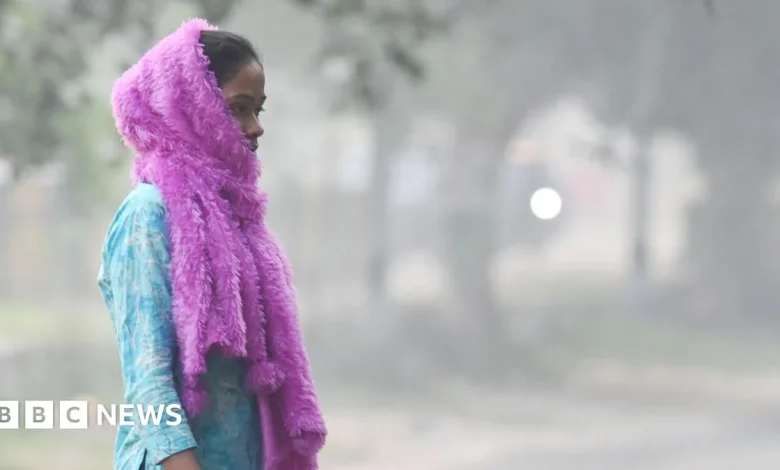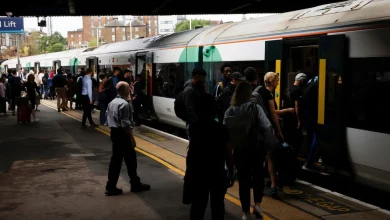Delhi air pollution: Schools go hybrid, mining banned as air quality worsens

Toxic air quality is a recurring problem in Delhi and across parts of northern India during the winter.
There isn’t a single cause behind the problem, but a mix of factors like low wind speeds, industrial emissions, vehicle exhaust, dropping temperatures and the seasonal burning of crop stubble in neighbouring states.
The Delhi government enforces a set of special measures known as the Graded Response Action Plan (GRAP) to contain pollution levels.
Stage three of these measures was implemented on Tuesday, which includes a ban on mining activity, stone crushing and prohibiting movement of vehicles carrying dust-generating materials among other things.
The worsening air quality led to a people’s protest in the capital last weekend, and has also sparked a political row.
On Tuesday, Saurabh Bhardwaj, a leader of the opposition Aam Aadmi Party (AAP) accused the Delhi government of “manipulating” air quality data and failing to protect public health.
He said that the city’s air quality remains “alarming” despite the alleged manipulation of numbers and urged the government to declare a public health emergency.
The Bharatiya Janata Party (BJP)-ruled Delhi government, however, has denied the allegations.
“Our government is working with full seriousness and promptness towards pollution control,” Chief Minister Rekha Gupta said.
Delhi Environment Minister Manjinder Singh Sirsa told the Hindustan Times, external that air quality data is publicly available and that water was sprinkled near air quality monitors only to reduce dust, not to manipulate readings.
Follow BBC News India on Instagram, external, YouTube,, external X, external and Facebook, external.





